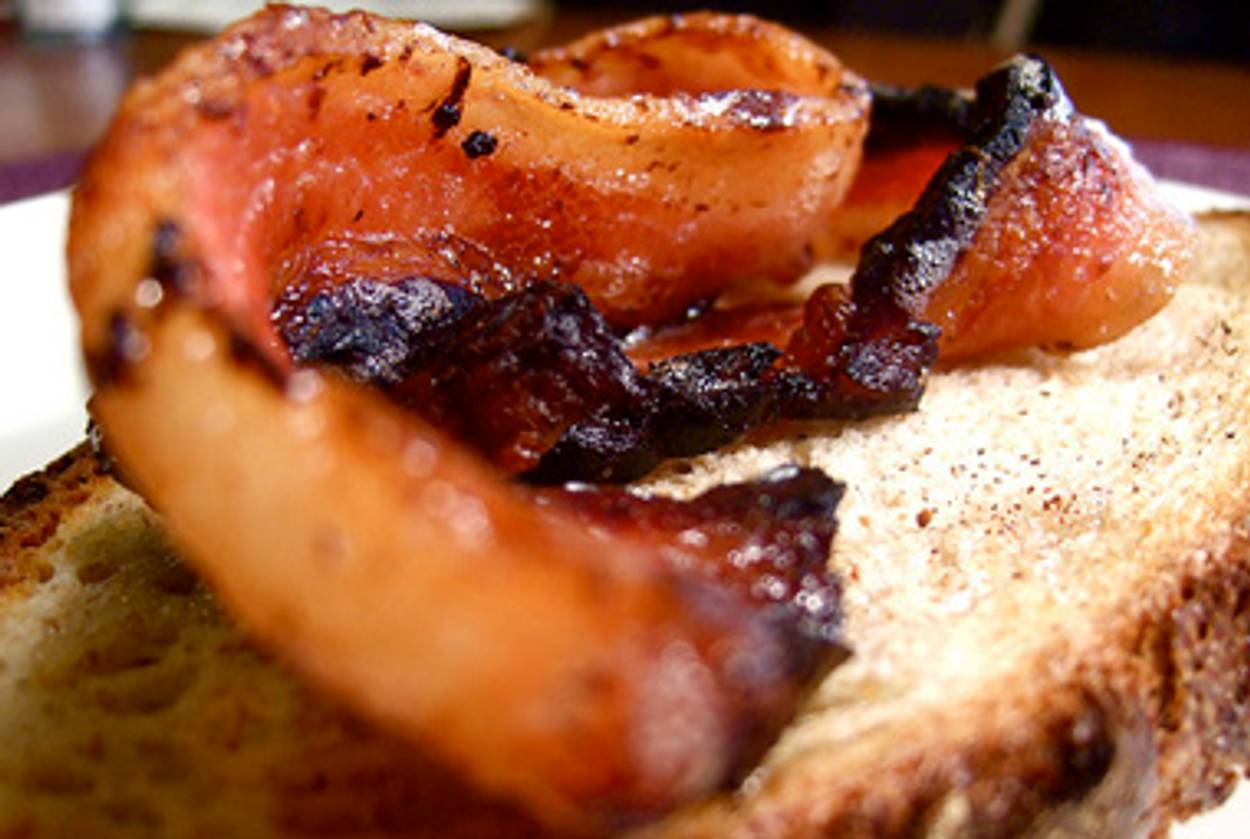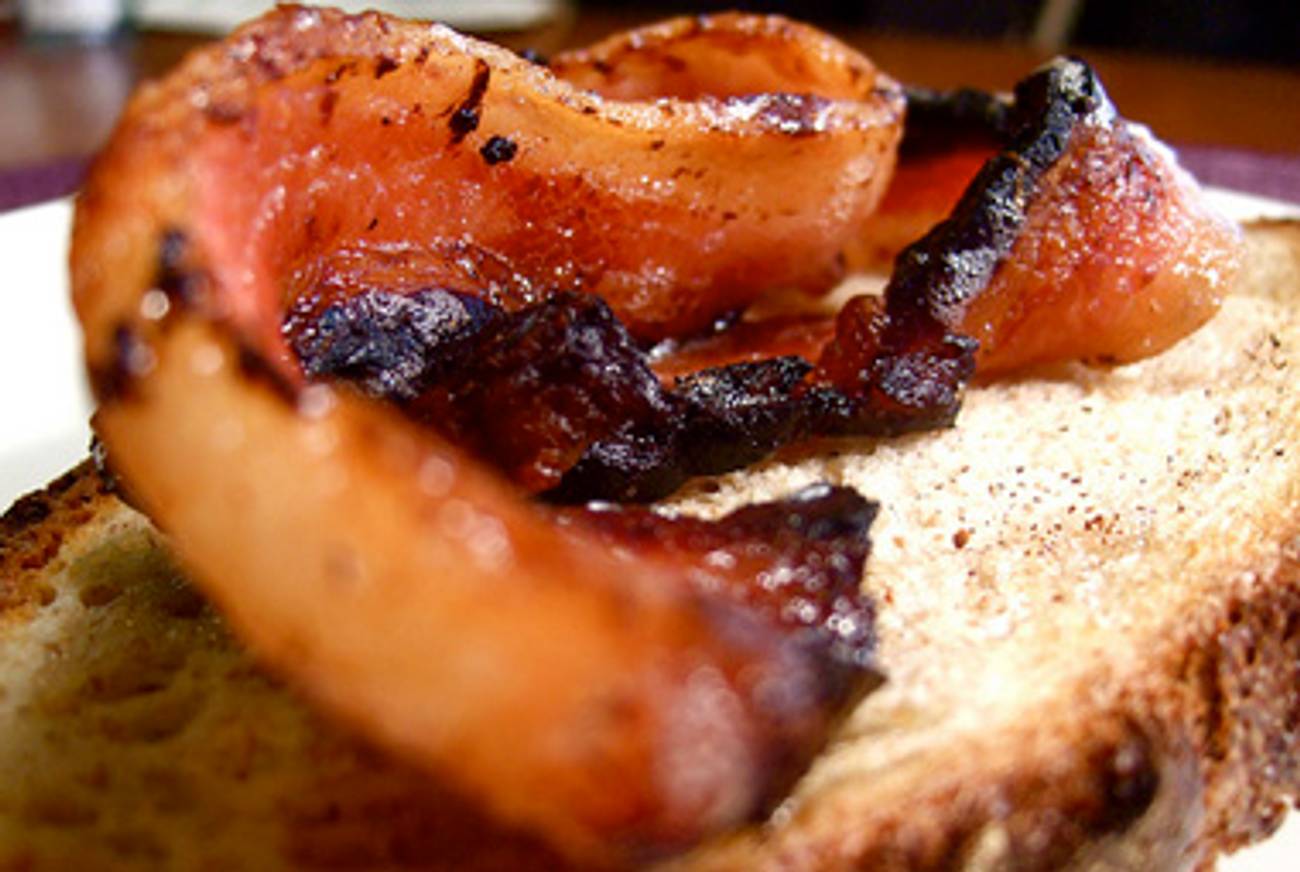Toward a New Kosher?
When eating pork is a Jewish act




At beliefnet, Rabbi Brad Hirschfeld noticed that New York Times restaurant critic Sam Sifton’s latest review, of the innovative Williamsburg barbecue joint Fatty ‘Cue, repeatedly describes emphatically un-kosher dishes in religious dietary terms. A mix of different types of fat, including pork fat, is “schmaltz for the deeply Reform”; a dish of clams with bacon is “in keeping with the restaurant’s interpretation of kashrut.”
Here’s what Hirschfeld says:
Far from mocking Jewish tradition, Sifton taps into the Jewish language which is clearly a part of his life to describe both the ways in which Kashrut uses eating to heighten a sense of one’s identity and how it expresses a commitment to something larger than the food on the plate. By proclaiming the treyf-ness (treyfiocoity?) of the food he was eating, and using traditional language to do so, Sifton placed the meal squarely within those traditions. In effect, treyf became a new kind of kashrut.
Hirschfeld goes on to suppose that we could be witnessing the birth of “a new kind of kosher”—literally. (As in, the religious definition could change.)
What I take away from his keen observation is a little different. The relevant thing about Sifton’s take on Fatty ‘Cue is that he is breaking the laws of kashrut, but is still understanding his eating experience, even jokingly, in terms of those laws. For him, eating pork is more than just eating pork; and eating pork fat mixed with chicken fat—which is to say, with schmaltz, the indelible Jewish edible—is thrillingly subversive. Put another way: It used to be that Jews couldn’t eat clams and bacon. Now, Jews can eat them, and have more important experiences doing so than Gentiles can. (Moreover, guess how I learned about Hirschfeld’s post?)
The new restaurant Traif, located all of a few blocks from Fatty ‘Cue, is similar. It is not kosher, but deliberately: It goes out of its way to serve shellfish and (especially) pork. It understands itself in terms of its relation to kashrut. It is less likely to lead to a new definition of kosher than to reinforce the current definition, since it depends on the old laws for its very identity.
This is not the freedom of no rules, but the freedom of breaking the rules, which is the much more meaningful sort of freedom. Sifton’s reviews and Traif do not anticipate a new kind of kosher. But they just might anticipate a new kind of Jewishness.
Is Treyf The New Kosher? [beliefnet]
Earlier: An Evening at Traif
Marc Tracy is a staff writer at The New Republic, and was previously a staff writer at Tablet. He tweets @marcatracy.